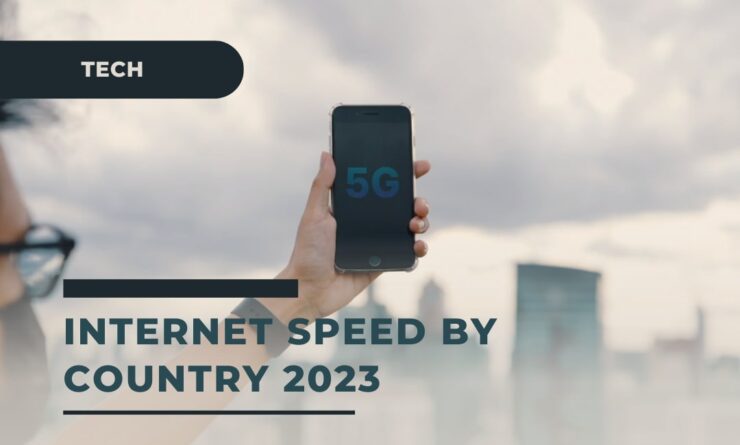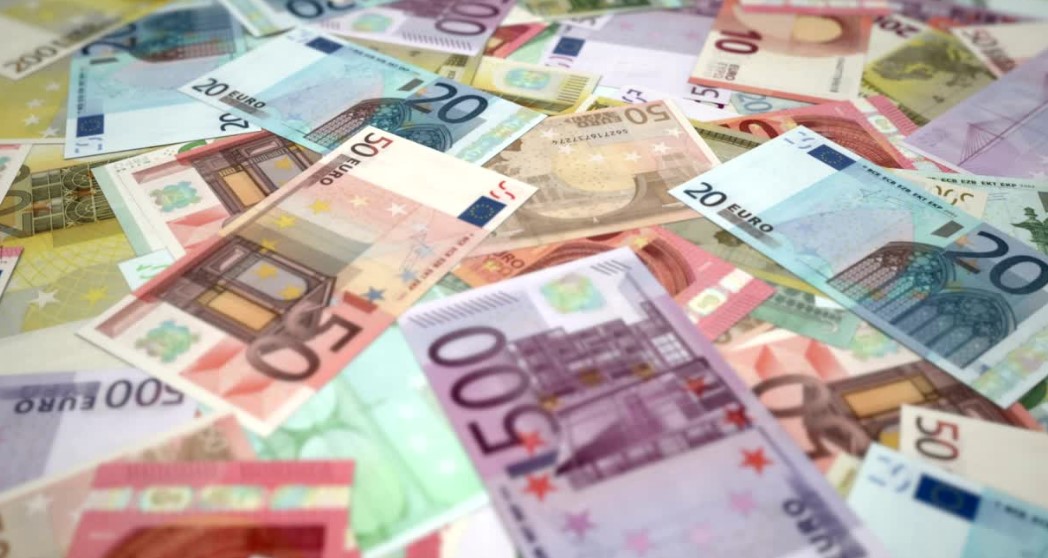The digital divide across the globe is quite stark, with internet speeds varying widely from country to country. Typically, wealthier nations, flush with resources, can pump more funds into their digital infrastructure, resulting in faster internet speeds. This is often seen in European and North American countries, which are usually ahead in the cyber race.
On the flip side, developing countries often find themselves in the slow lane of the information superhighway. A scarcity of resources and investment often leaves them trailing behind. African nations, for instance, often grapple with sluggish internet speeds due to underdeveloped infrastructure and insufficient investment.
Geography can also be a speed bump on the internet highway. Remote and rural areas around the world often experience slower speeds due to their distance from major hubs or populated areas.
The competitive landscape of internet providers also plays a significant role in a country’s internet speed. More competition often leads to lower prices and faster speeds, as providers vie for customers.
However, the digital landscape is ever-evolving, and technological breakthroughs like 5G can be a game-changer, allowing some countries to leapfrog others in terms of internet speed and accessibility.
In a nutshell, the disparity in average internet speeds across countries boils down to economic conditions, technological innovation, and market competition.
| # | Country | Average Internet Speed | Median Internet Speed |
|---|---|---|---|
| 1 | Monaco | 319.59 Mbps | 181.26 Mbps |
| 2 | Singapore | 300.83 Mbps | 214.23 Mbps |
| 3 | Chile | 298.5 Mbps | 216.46 Mbps |
| 4 | Hong Kong | 292.21 Mbps | 194.35 Mbps |
| 5 | People’s Republic of China | 280.01 Mbps | 214.58 Mbps |
| 6 | Switzerland | 279.8 Mbps | 144.78 Mbps |
| 7 | France | 271.33 Mbps | 150.15 Mbps |
| 8 | Denmark | 270.27 Mbps | 188.35 Mbps |
| 9 | Romania | 260.97 Mbps | 170.25 Mbps |
| 10 | Thailand | 260.54 Mbps | 205.63 Mbps |
Hold on to your modems, folks! The cyber speedway has some new champions! Let’s take a thrilling ride through the rankings of the countries with the best internet speeds.
Monaco, the glamorous city-state on the French Riviera, takes the gold medal with a blistering average internet speed of 319.59 Mbps. Singapore, the Lion City, roars into second place with an impressive 300.83 Mbps. Chile, the long, thin country that stretches down the western edge of South America, clinches the bronze with a solid 298.5 Mbps.
Hong Kong, the bustling metropolis known for its skyline, is hot on their heels in fourth place with 292.21 Mbps. China, the most populous country in the world, rounds out the top five with a respectable 280.01 Mbps.
Switzerland, the land of chocolate and watches, clocks in at sixth place with 279.8 Mbps. France, the country of love and lights, secures the seventh spot with 271.33 Mbps. Denmark, the happiest country in the world, is happy to be in eighth place with 270.27 Mbps. Romania, known for its rich history and beautiful landscapes, takes ninth place with 260.97 Mbps. And finally, Thailand, the land of smiles, grins all the way to the tenth spot with 260.54 Mbps.
So, here’s the leaderboard of the digital race:
- Monaco – 319.59 Mbps
- Singapore – 300.83 Mbps
- Chile – 298.5 Mbps
- Hong Kong – 292.21 Mbps
- China – 280.01 Mbps
- Switzerland – 279.8 Mbps
- France – 271.33 Mbps
- Denmark – 270.27 Mbps
- Romania – 260.97 Mbps
- Thailand – 260.54 Mbps
Remember, in the digital age, speed is everything! So, choose your cyber lanes wisely!
10 Countries With The Slowest Internet
Afghanistan has the slowest broadband in the world with an average speed of just 0.77Mbps. It would take 28 minutes to download a 5GB movie.
- Afghanistan
- Yemen
- Syria
- East Timor
- Equatorial Guinea
- Tajikistan
- Cameroon
- Ethiopia
- Burundi
- South Sudan
The Fastest (and Slowest) Internet Speeds in the World
.
Using data from the https://t.co/OpW3Y9ml8T.#Internet #InternetoftheWorld #InternetThings #InternetLiteracy #InternetAwareness #NetUsability #Internet #FastInternet #CanadianISP #InternetCanada #CanadaISP #InternetService pic.twitter.com/jFq5qmIoJk— Coextro (@Coextro) January 11, 2022
The Internet Is Getting Faster, But..
The digital world is picking up speed! The global average internet speed has zoomed up by a whopping 30.04% from 34.79Mbps in 2022 to 45.6Mbps in 2024. But, there’s a “but”…
The turbo boost in global internet speed is largely thanks to the developed nations. With their robust infrastructure, they’re able to adopt and roll out the latest tech marvels. On the flip side, the countries trailing behind in the digital race are seeing less development and slower adoption of high-speed infrastructure.
Size and development level of a nation play a key role in its internet speed. Smaller, more developed countries are often in the fast lane, while larger, less developed nations tend to lag behind. It’s simply easier to roll out full-fibre broadband and 5G mobile internet to a smaller population or area.
Countries with The Fastest Internet in Europe
- Liechtenstein
- Iceland
- Andorra
- Luxembourg
- France
- Netherlands
- Slovakia
- Spain
- San Marino
- Monaco
Fastest Internet in Asia
- Macau
- Taiwan
- Japan
- Singapore
- South Korea
- Hong Kong
- Thailand
- India
- Philippines
- Malaysia
Countries with The Fastest Internet in Africa
- Rwanda
- South Africa
- Burkina Faso
- Mauritius
- Nigeria
- Madagascar
- Seychelles
- Morocco
- Ivory Coast
- Congo
In the Americas
- USA
- Canada
- Uruguay
- Barbados
- Chile
- Grenada
- Brazil
- Dominica
- The Bahamas
- Saint Vincent and the Grenadines
In the Middle East
- Israel
- Qatar
- Bahrain
- UAE
- Kuwait
- Jordan
- Oman
- Saudi Arabia
- Turkey
- Palestine
World Rankings
The table below ranks countries by their average download speed in megabits per second (Mbps).
Some countries and territories have been excluded due to insufficient sample size.
| # | Country | Average Internet Speed | Median Internet Speed |
|---|---|---|---|
| 1 | Monaco | 319.59 Mbps | 181.26 Mbps |
| 2 | Singapore | 300.83 Mbps | 214.23 Mbps |
| 3 | Chile | 298.5 Mbps | 216.46 Mbps |
| 4 | Hong Kong | 292.21 Mbps | 194.35 Mbps |
| 5 | People’s Republic of China | 280.01 Mbps | 214.58 Mbps |
| 6 | Switzerland | 279.8 Mbps | 144.78 Mbps |
| 7 | France | 271.33 Mbps | 150.15 Mbps |
| 8 | Denmark | 270.27 Mbps | 188.35 Mbps |
| 9 | Romania | 260.97 Mbps | 170.25 Mbps |
| 10 | Thailand | 260.54 Mbps | 205.63 Mbps |
| 11 | United Arab Emirates | 256.04 Mbps | 186.76 Mbps |
| 12 | United States of America | 256.03 Mbps | 189.48 Mbps |
| 13 | Japan | 252.34 Mbps | 150.32 Mbps |
| 14 | Spain | 248.25 Mbps | 166.78 Mbps |
| 15 | Hungary | 245.97 Mbps | 123.17 Mbps |
| 16 | Canada | 240.3 Mbps | 136.87 Mbps |
| 17 | Liechtenstein | 240.25 Mbps | 110.97 Mbps |
| 18 | Macau | 221.23 Mbps | 159.78 Mbps |
| 19 | Israel | 216.29 Mbps | 95.66 Mbps |
| 20 | New Zealand | 214.47 Mbps | 133.18 Mbps |
| 21 | Netherlands | 209.11 Mbps | 120.82 Mbps |
| 22 | Portugal | 205.11 Mbps | 119.06 Mbps |
| 23 | Sweden | 199.11 Mbps | 107.83 Mbps |
| 24 | Luxembourg | 198.73 Mbps | 94.39 Mbps |
| 25 | Moldova | 197.28 Mbps | 105.06 Mbps |
| 26 | Taiwan | 194.42 Mbps | 124.14 Mbps |
| 27 | Malta | 188.55 Mbps | 93.17 Mbps |
| 28 | Norway | 186.61 Mbps | 111.55 Mbps |
| 29 | Poland | 183.93 Mbps | 95.95 Mbps |
| 30 | Kuwait | 179.32 Mbps | 117.26 Mbps |
| 31 | Uruguay | 177.74 Mbps | 104.72 Mbps |
| 32 | Lithuania | 176.5 Mbps | 89.23 Mbps |
| 33 | South Korea | 176.31 Mbps | 95.34 Mbps |
| 34 | Latvia | 173.28 Mbps | 72.4 Mbps |
| 35 | Brazil | 172.2 Mbps | 97.52 Mbps |
| 36 | Finland | 171.92 Mbps | 94.39 Mbps |
| 37 | Andorra | 170.11 Mbps | 131.3 Mbps |
| 38 | Panama | 168.86 Mbps | 118.01 Mbps |
| 39 | Slovenia | 160.91 Mbps | 79.29 Mbps |
| 40 | Qatar | 157.86 Mbps | 90.86 Mbps |
| 41 | Germany | 153.77 Mbps | 80.69 Mbps |
| 42 | Slovakia | 152.77 Mbps | 59.08 Mbps |
| 43 | Ireland | 151.32 Mbps | 77.91 Mbps |
| 44 | Belgium | 150.29 Mbps | 86.7 Mbps |
| 45 | United Kingdom | 145.33 Mbps | 73.21 Mbps |
| 46 | Italy | 144.34 Mbps | 60.12 Mbps |
| 47 | Malaysia | 135.4 Mbps | 91.5 Mbps |
| 48 | Dominica | 135.36 Mbps | 82.11 Mbps |
| 49 | Philippines | 132.36 Mbps | 81.42 Mbps |
| 50 | San Marino | 129.11 Mbps | 61.32 Mbps |
| 51 | Colombia | 125.86 Mbps | 89.61 Mbps |
| 52 | Barbados | 123.62 Mbps | 78.27 Mbps |
| 53 | Saint Lucia | 121.64 Mbps | 75.16 Mbps |
| 54 | Bulgaria | 115.15 Mbps | 67.76 Mbps |
| 55 | Jordan | 114.5 Mbps | 74.46 Mbps |
| 56 | Serbia | 114.17 Mbps | 60.45 Mbps |
| 57 | Russia | 113.58 Mbps | 74.92 Mbps |
| 58 | Austria | 113.1 Mbps | 67.23 Mbps |
| 59 | Czech Republic | 112.81 Mbps | 52.78 Mbps |
| 60 | Saint Vincent and the Grenadines | 112.36 Mbps | 76.59 Mbps |
| 61 | Vietnam | 111.89 Mbps | 80.27 Mbps |
| 62 | Argentina | 111.23 Mbps | 60.25 Mbps |
| 63 | Saudi Arabia | 109.83 Mbps | 88.12 Mbps |
| 64 | Croatia | 109.27 Mbps | 46.53 Mbps |
| 65 | Trinidad and Tobago | 103.52 Mbps | 84.84 Mbps |
| 66 | Estonia | 103.48 Mbps | 58.33 Mbps |
| 67 | Paraguay | 99.2 Mbps | 68.24 Mbps |
| 68 | Ukraine | 95.2 Mbps | 60 Mbps |
| 69 | Grenada | 95.13 Mbps | 64.02 Mbps |
| 70 | Guyana | 92.05 Mbps | 49.78 Mbps |
| 71 | Peru | 91.68 Mbps | 65.73 Mbps |
| 72 | Costa Rica | 91.08 Mbps | 65.3 Mbps |
| 73 | Australia | 88.77 Mbps | 53.06 Mbps |
| 74 | Montenegro | 87.87 Mbps | 54.66 Mbps |
| 75 | Oman | 84.14 Mbps | 59.74 Mbps |
| 76 | Palestine | 82.73 Mbps | 50.45 Mbps |
| 77 | Cyprus | 80.97 Mbps | 36.5 Mbps |
| 78 | Belarus | 79.35 Mbps | 50.27 Mbps |
| 79 | Bahrain | 79.28 Mbps | 48.32 Mbps |
| 80 | Nepal | 78.55 Mbps | 48.45 Mbps |
| 81 | India | 77.64 Mbps | 49.09 Mbps |
| 82 | Mexico | 77.07 Mbps | 49.91 Mbps |
| 83 | Kazakhstan | 74.84 Mbps | 45.27 Mbps |
| 84 | Kosovo | 74.7 Mbps | 53.81 Mbps |
| 85 | Armenia | 73.55 Mbps | 40.14 Mbps |
| 86 | The Bahamas | 71.88 Mbps | 45.11 Mbps |
| 87 | South Africa | 70.79 Mbps | 40.12 Mbps |
| 88 | Albania | 68.31 Mbps | 44.63 Mbps |
| 89 | Ecuador | 66.78 Mbps | 46.32 Mbps |
| 90 | Jamaica | 65.6 Mbps | 48.91 Mbps |
| 91 | Turkey | 64.52 Mbps | 31.86 Mbps |
| 92 | Mongolia | 64.15 Mbps | 52.47 Mbps |
| 93 | Uzbekistan | 63.05 Mbps | 45.17 Mbps |
| 94 | Brunei | 62.12 Mbps | 46.92 Mbps |
| 95 | Nicaragua | 61.73 Mbps | 41.41 Mbps |
| 96 | Burkina Faso | 60.3 Mbps | 44.78 Mbps |
| 97 | Saint Kitts and Nevis | 59.87 Mbps | 29.54 Mbps |
| 98 | Republic of Macedonia | 59.84 Mbps | 33.37 Mbps |
| 99 | Ghana | 59.41 Mbps | 27.7 Mbps |
| 100 | Bosnia and Herzegovina | 58.05 Mbps | 27.25 Mbps |
| 101 | Gabon | 57.81 Mbps | 39.72 Mbps |
| 102 | Greece | 56.43 Mbps | 42.79 Mbps |
| 103 | Ivory Coast | 55.88 Mbps | 38.92 Mbps |
| 104 | Mauritius | 53.91 Mbps | 26.53 Mbps |
| 105 | Bangladesh | 52.9 Mbps | 34.85 Mbps |
| 106 | Kyrgyzstan | 52.6 Mbps | 48.47 Mbps |
| 107 | Belize | 51.6 Mbps | 40.72 Mbps |
| 108 | Seychelles | 48.8 Mbps | 30.86 Mbps |
| 109 | Tajikistan | 45.96 Mbps | 32.09 Mbps |
| 110 | Egypt | 45.82 Mbps | 45.79 Mbps |
| 111 | Republic of the Congo | 45.57 Mbps | 29.58 Mbps |
| 112 | Rwanda | 43.36 Mbps | 10.15 Mbps |
| 113 | Indonesia | 43.35 Mbps | 24.32 Mbps |
| 114 | El Salvador | 42.95 Mbps | 31.3 Mbps |
| 115 | Iraq | 42.69 Mbps | 21.27 Mbps |
| 116 | Laos | 42.43 Mbps | 28.33 Mbps |
| 117 | Venezuela | 41.48 Mbps | 14.49 Mbps |
| 118 | Senegal | 41.35 Mbps | 21.77 Mbps |
| 119 | Madagascar | 40.94 Mbps | 30.62 Mbps |
| 120 | Togo | 40.16 Mbps | 29.63 Mbps |
| 121 | Dominican Republic | 38.1 Mbps | 19.28 Mbps |
| 122 | Guatemala | 37.06 Mbps | 27.02 Mbps |
| 123 | Honduras | 35.99 Mbps | 29.4 Mbps |
| 124 | Azerbaijan | 35.7 Mbps | 26.95 Mbps |
| 125 | Lesotho | 35.46 Mbps | 17.33 Mbps |
| 126 | Somalia | 35.06 Mbps | 8.34 Mbps |
| 127 | Antigua and Barbuda | 35.05 Mbps | 27.14 Mbps |
| 128 | Cambodia | 34.65 Mbps | 20.22 Mbps |
| 129 | Bolivia | 33.79 Mbps | 24.94 Mbps |
| 130 | Morocco | 33.77 Mbps | 17.97 Mbps |
| 131 | Bhutan | 33.64 Mbps | 17.27 Mbps |
| 132 | Sri Lanka | 32.54 Mbps | 20.09 Mbps |
| 133 | Western Sahara | 30.44 Mbps | 15.14 Mbps |
| 134 | Georgia | 30.28 Mbps | 25.97 Mbps |
| 135 | Mali | 30 Mbps | 22.88 Mbps |
| 136 | Haiti | 29.51 Mbps | 15.71 Mbps |
| 137 | Ethiopia | 28.44 Mbps | 5.19 Mbps |
| 138 | Fiji | 26.92 Mbps | 14.04 Mbps |
| 139 | Myanmar | 26.8 Mbps | 18.98 Mbps |
| 140 | Mauritania | 26.58 Mbps | 23.74 Mbps |
| 141 | Djibouti | 26.5 Mbps | 7.36 Mbps |
| 142 | Angola | 26.36 Mbps | 14.89 Mbps |
| 143 | Maldives | 25.32 Mbps | 10.45 Mbps |
| 144 | Malawi | 24.74 Mbps | 8.77 Mbps |
| 145 | Iran | 24.44 Mbps | 11.62 Mbps |
| 146 | Nigeria | 24.22 Mbps | 11.84 Mbps |
| 147 | Cameroon | 23.49 Mbps | 8.41 Mbps |
| 148 | Benin | 22.3 Mbps | 14.55 Mbps |
| 149 | Suriname | 22.05 Mbps | 11.49 Mbps |
| 150 | Tanzania | 22.05 Mbps | 12.99 Mbps |
| 151 | Zimbabwe | 21.79 Mbps | 8.52 Mbps |
| 152 | Uganda | 21.25 Mbps | 10.72 Mbps |
| 153 | Democratic Republic of the Congo | 21.09 Mbps | 10.24 Mbps |
| 154 | Lebanon | 20.71 Mbps | 7.27 Mbps |
| 155 | Kenya | 20.54 Mbps | 9.6 Mbps |
| 156 | Zambia | 19.36 Mbps | 8.66 Mbps |
| 157 | Namibia | 19.29 Mbps | 8.28 Mbps |
| 158 | Sierra Leone | 19.13 Mbps | 11.6 Mbps |
| 159 | Pakistan | 17.02 Mbps | 10.28 Mbps |
| 160 | Liberia | 16.95 Mbps | 7.35 Mbps |
| 161 | Guinea | 16.4 Mbps | 8.48 Mbps |
| 162 | Niger | 16.07 Mbps | 4.47 Mbps |
| 163 | Vanuatu | 16.06 Mbps | 9.4 Mbps |
| 164 | Libya | 15.9 Mbps | 8.86 Mbps |
| 165 | Botswana | 14.11 Mbps | 7.52 Mbps |
| 166 | Algeria | 13.86 Mbps | 11.01 Mbps |
| 167 | Tunisia | 11.88 Mbps | 8.15 Mbps |
| 168 | Mozambique | 11.51 Mbps | 6.29 Mbps |
| 169 | Yemen | 11.44 Mbps | 3.9 Mbps |
| 170 | Sudan | 11.34 Mbps | 5.04 Mbps |
| 171 | Syria | 11.06 Mbps | 3.16 Mbps |
| 172 | The Gambia | 10.63 Mbps | 6.44 Mbps |
| 173 | Burundi | 9.62 Mbps | 4.9 Mbps |
| 174 | Afghanistan | 9.28 Mbps | 2.25 Mbps |
| 175 | Turkmenistan | 8.84 Mbps | 2.45 Mbps |
| 176 | Cuba | 7.21 Mbps | 1.91 Mbps |
FAQs
What factors contribute to the disparity in internet speeds across different countries?
The disparity in internet speeds across countries is influenced by several factors including economic conditions, level of technological innovation, and market competition. Wealthier nations with more resources can invest more in their digital infrastructure, leading to faster internet speeds. Conversely, developing countries often struggle with slower internet speeds due to a lack of resources and investment. Additionally, the competitive landscape of internet providers in a country can also affect internet speed, with more competition often leading to lower prices and faster speeds.
How does geography impact internet speeds?
Geography plays a significant role in internet speeds. Remote and rural areas often experience slower speeds due to their distance from major hubs or populated areas. It’s more challenging and costly to build and maintain the necessary infrastructure in these areas, which can result in slower internet speeds.
What is the potential impact of 5G on global internet speeds?
5G technology has the potential to significantly increase internet speeds and accessibility. It can allow some countries to leapfrog others in terms of internet speed, even if they have been lagging behind. This is because 5G technology offers faster data transmission rates, greater network capacity, and reduced latency compared to its predecessors.
Why do smaller, more developed countries often have faster internet speeds?
Smaller, more developed countries often have faster internet speeds because it’s easier to roll out high-speed infrastructure like full-fibre broadband and 5G mobile internet to a smaller population or area. These countries also tend to have more resources to invest in their digital infrastructure, which contributes to faster internet speeds.
Which countries currently have the fastest internet speeds?
As of the time of writing, the countries with the fastest internet speeds are Monaco, Singapore, and Chile. However, this can change as the digital landscape evolves and new technologies are adopted.
What are the challenges for countries with slower internet speeds?
Countries with slower internet speeds often face challenges such as underdeveloped infrastructure, insufficient investment, and a lack of competition among internet providers. These challenges are often more pronounced in developing countries and remote or rural areas. However, advancements in technology like 5G offer hope for these countries to improve their internet speeds in the future.
Final Words
In conclusion, the digital divide across the globe is a stark reality that reflects the economic, infrastructural, and competitive landscapes of different countries. While countries like Monaco, Singapore, and Chile lead the pack with blazing internet speeds, others like Afghanistan, Yemen, and Syria lag behind due to various challenges.
However, the digital landscape is ever-evolving, and with technological advancements like 5G, there’s hope for countries currently in the slow lane of the information superhighway. As we move further into the digital age, it’s crucial for nations worldwide to invest in their digital infrastructure and ensure that their citizens have access to fast and reliable internet. After all, in today’s interconnected world, internet speed is not just a luxury, but a necessity.
















